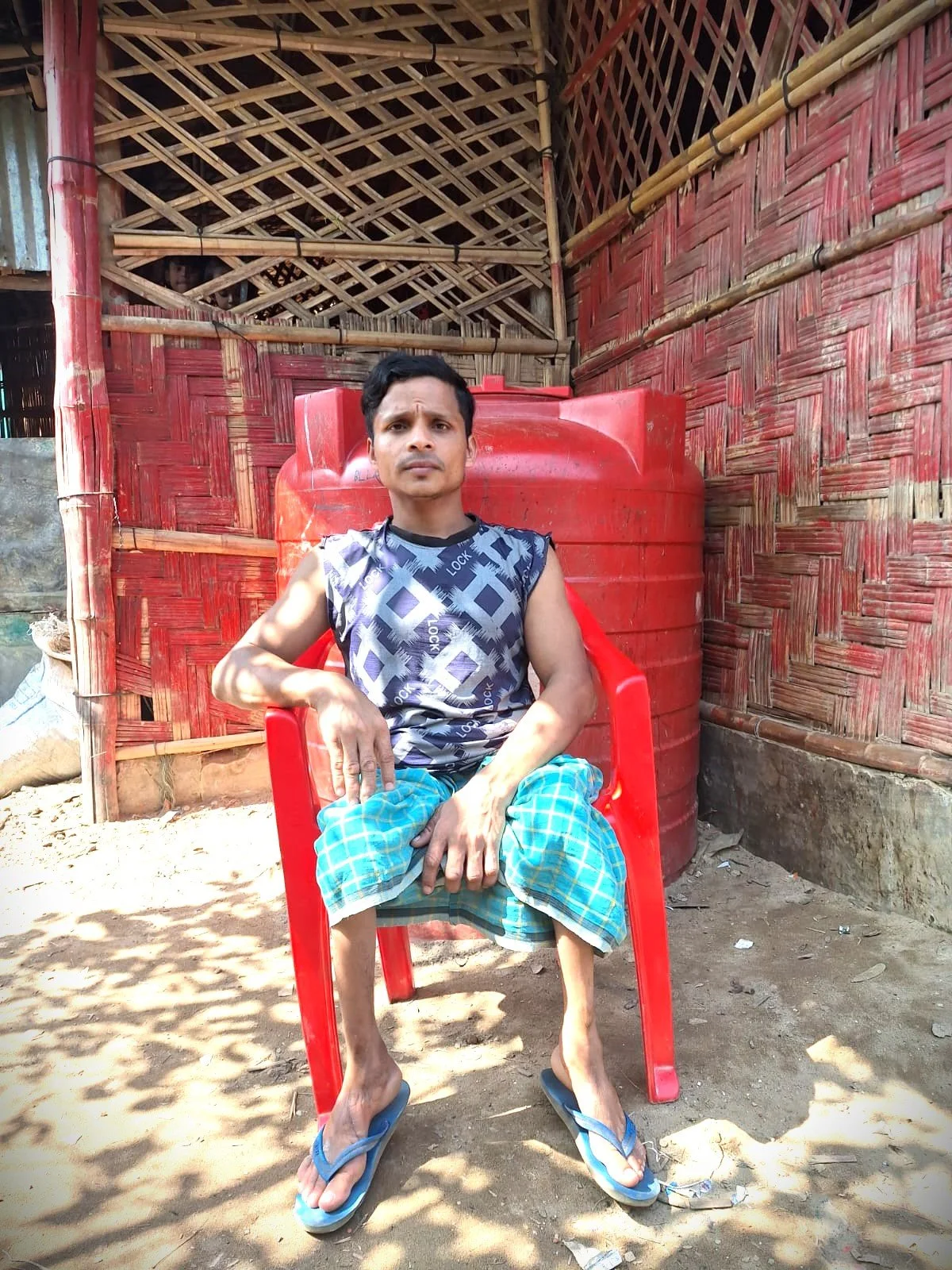Taking one chance at work to create a new life
Above: Mojiullah outside of his home. Credit: Arfat Habib/CARE Bangladesh
Mojiullah, a 27-year-old Rohingya man, knew the feeling of isolation all too well. Born with a walking impairment, he spent most of his life depending on others, and this only intensified after he fled Myanmar and settled in the camps of Bangladesh. Finding a suitable job for Mojiullah was difficult in the camp areas with hilly topography, which confined him inside his sister’s family shelter.
CARE Bangladesh’s Cash for Work program to support disaster risk reduction, supported by the Australian Humanitarian Partnership, needed volunteers to complete a wide range of tasks like construction, digging and porting, as well as workers with some knowledge on bookkeeping and store maintenance. Project volunteers found Mojiullah, and seeing his potential, offered him a low-movement duty that would suit his abilities.
Mojiullah was thrilled and eagerly accepted the job. His tasks included keeping track of materials for ongoing infrastructure projects and distributing water to workers — a role that gave him purpose without compromising his physical condition. For the first time, he felt that he was doing something meaningful, both for himself and his community. Starting in 2019, his participation in the Cash for Work program marked a turning point. The small income he earned brought not only financial security, but also dignity and acceptance in his community.
Mojiullah’s diligent saving put him in a position to make a larger decision by mid-2020; he started his own small business selling groceries inside the camp. His popularity and meticulous collection of goods grew his business in no time. This remarkably improved his confidence, transforming him from a dependent to a self-made business owner. This journey of strong will and hard work earned him recognition and respect across the community.
By the end of 2020, buoyed by his new stability, he took another leap of faith; he got married and moved out of his sister’s shelter to start his own family. His improved financial position and newfound confidence had made family life possible, and today he is the proud father of a two-year-old son.
Currently, his small grocery shop is non-operational due to local government restrictions. However, he now earns BDT 1,200 (AUD 15) per month from selling reared chickens, pigeons, and homestead vegetables, which also enhances his family’s food security. Additionally, he can earn more if opportunities to participate in the Cash for Work program arise.
“My life has truly transformed,” Mojiullah reflects. “The depression and frustration I once felt are gone. I’ve realised that without financial security, people are often overlooked. My improved situation made marriage and family life possible.”
The disaster risk reduction program is also working to improve the camp's infrastructure in ways that make life easier for people with disabilities. The construction of pathways, stairs, slope stabilisations and the regular cleaning of drainage systems also reduce the risk of landslides, soil erosion, and waterlogging. With these improvements, people like Mojiullah can more safely navigate the camp, accessing essential services like healthcare, education, and markets with newfound ease.
Mojiullah’s journey from isolation to self-sufficiency is a powerful testament to the life-changing impact of inclusive livelihood opportunities. Today, his story serves as a reminder of how programs that prioritise accessibility and dignity can transform lives, building not just resilient individuals, but a stronger, more connected community.
This activity was implemented by CARE Bangladesh with Australian Government support through the Australian Humanitarian Partnership. The activities are part of the CARE-led consortium response with Oxfam and Plan International.


